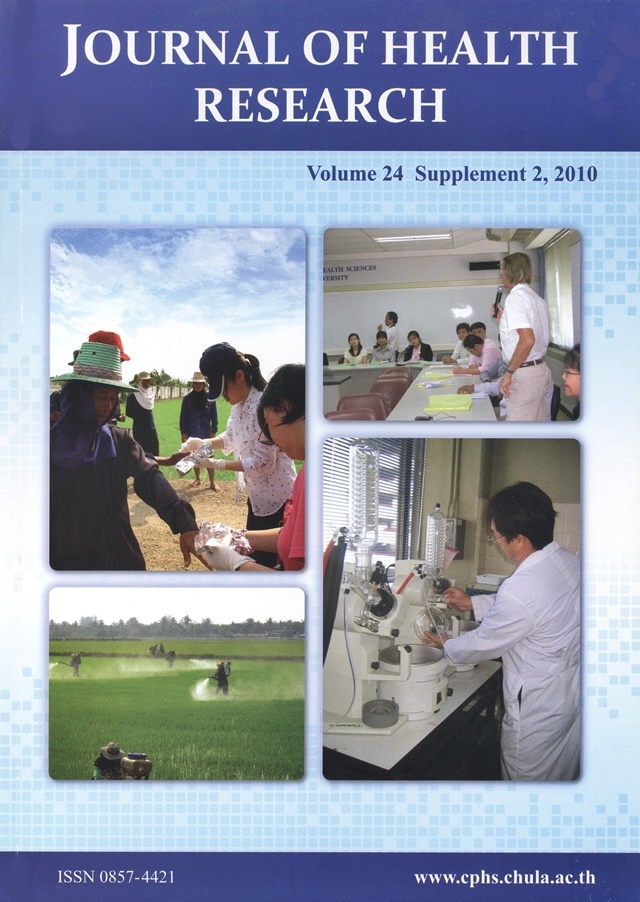Model for Behavioral Change in High Risk Toward Diabetes Type II Patients by Camping, Mueang District, Roi Et Province,Thailand
Keywords:
Behavioral change, High risk, Diabetes type II patients, Camnping, Roi Et province, ThailandAbstract
The objective of this study was to 1) study the behavior differences between high risk toward diabetes type II patents who attended and who did not attend the ’Change in Health Behavior’ Camping program 2) study the effect of the interventions on physiological parameters (BMI and waist circumferences). It was a quasi-experimental research in nature. The sample groups in this research were those with high risk toward diabetes type II patients who had more than 6 scares. The sample groups were between 40-59 years of age, resided in Mueang district, Roi Et province. Voluntary method was used to recruited the sample groups from 2 Tambons. The experimental group consisted of 30 samples who were recruited to attend the mentioned camping program. On the other than, another 30 samples of the comparison group received only brochures, thus total of 60 samples was in compliance with the regulations. The results indicated that in the post- experiment, the mean of waist circumference, knowledge and health behaviors between the experimental and the comparison groups were different with statistical significance at the level of 0.05. Within the experimental group, the mean of waist circumference, body mass index (BMI), knowledge, and health behaviors were different both in the pre- and post-camping with statistical significance at the level of 0.05. On the other hand, the comparison group had the mean of knowledge during the pre- and post of the receipt of brochures with statistical signifvancane at the level of 0.05. Consequently, the use of camping program on ‘Change in Health Behavior’ by applying the group process and empowerment of related activities while in the camping program are proper for health promotion behavior as well as for the reduction of risk factors toward diabetes mellitus type II among general population and other high-risk groups. The success of the program through training, practice on obesity assessment, learning through group activity, skill building-up for menu arrangement for daily energy use, exercise training delivery of commitment to health promotion – peer group promoting healthy behaviors among colleagues. With an application of the program, it can prove to be both beneficial and appropriate to the community in the reduction of risk factors toward diabetes mellitus whose illness which is a vital problem to Thailand.Downloads
Published
2018-11-28
How to Cite
Suphomin, S., Hongsranagon, P., & Pakdeesamai, P. (2018). Model for Behavioral Change in High Risk Toward Diabetes Type II Patients by Camping, Mueang District, Roi Et Province,Thailand. Journal of Health Research, 24(Suppl. 2), 115–120. retrieved from https://he01.tci-thaijo.org/index.php/jhealthres/article/view/157604
Issue
Section
ORIGINAL RESEARCH ARTICLE







